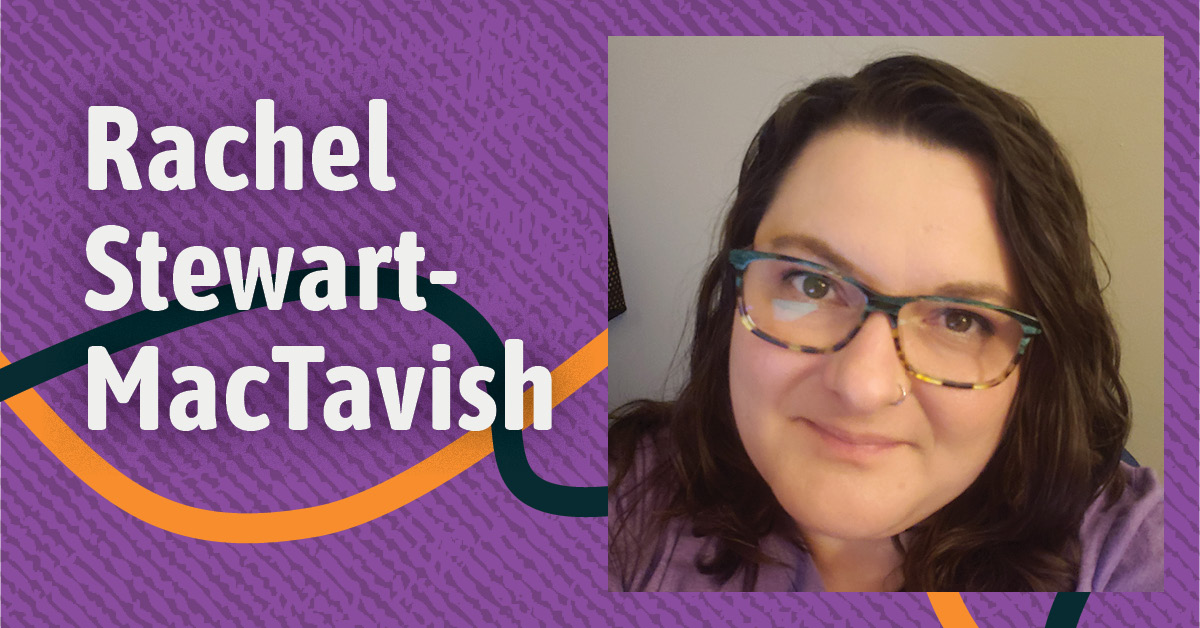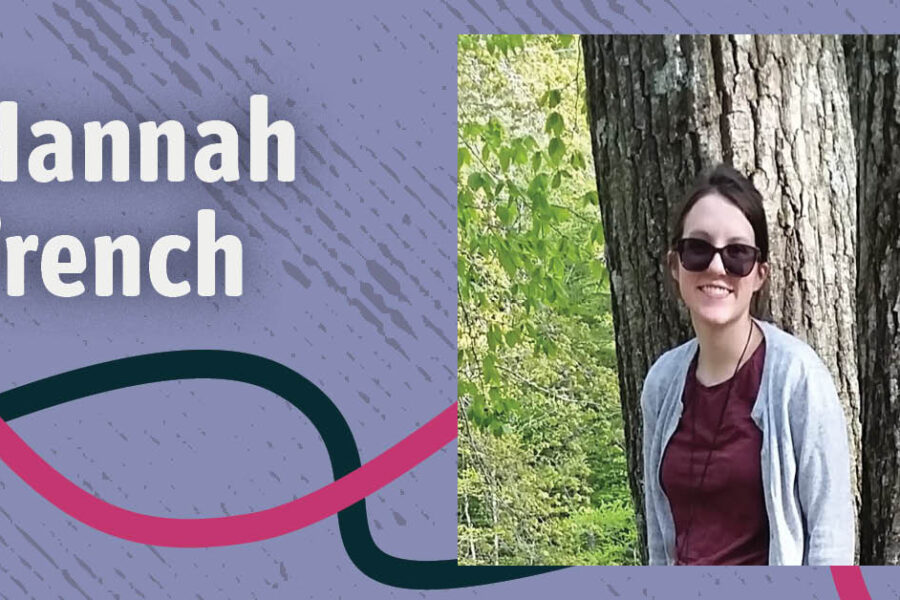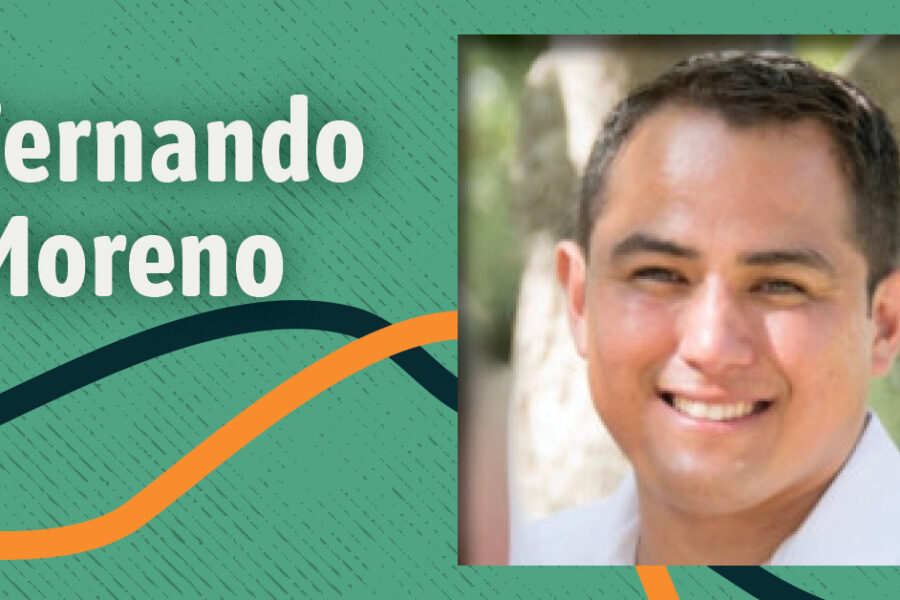Rachel Stewart-MacTavish loves working with children, and especially with those who most need help: children in difficult situations like the foster system, mental health treatment, or conflict with their families. She’s currently developing this passion as a graduate student in the Master of Arts in Couple & Family Therapy Program at Antioch University Seattle, where she has found a profound love of a powerful modality: play therapy.
But it wasn’t always clear that this was the career for Stewart-MacTavish—or that getting a graduate degree would be possible at all. She is not only the first in her family to pursue higher education, but she was also the first in her family to obtain a high school diploma. It’s been an interesting path for Stewart-MacTavish, one intertwined with a history of important positions and jobs, each focused on ways to help, heal, and advocate for children.
Finding a Passion for Helping Children
Stewart-MacTavish grew up in Eugene Oregon. She was raised by a single mother. While she never was in foster care herself, always heard stories of the foster care system from her mother, who had been a foster child herself from when she was six years old through to age sixteen. These stories made a deep impression on her, teaching her about the difficulties of being part of such a system.
So when Stewart-MacTavish graduated from high school, she sought out work helping children in situations similar to the one her mother had been in. She eventually spent seven years working as a residential counselor and then as a program manager at the Ruth Dykeman Children’s Center, a behavioral rehabilitation residential facility in Washington State. Her job duties included creating treatment plans for clients who were in and out of foster care, who had violent behaviors, or who needed mental health counseling. The work was satisfying, even if many days were difficult, too. Doing this work showed Stewart-MacTavish that, no matter what, she wanted to work with and help children.
Psychology and Compassion
When the Ruth Dykeman Children’s Center shut down in 2017, Stewart-MacTavish was forced to search for her next move. She decided that it was time to finish a bachelor’s degree. She enrolled at Antioch University Seattle in its Liberal Studies Program with a concentration in Psychology and Counseling.
She was drawn to this program because many of her co-workers also attended Antioch and spoke highly of the program. Once enrolled, she found that it expanded her mind, especially in regard to social justice. This focus of Antioch aligns with the deep importance Stewart-MacTavish has placed on social justice in her work over the years.
During her three years finishing the degree, Stewart-MacTavish worked as a wraparound facilitator at Sound, a mental health and addiction treatment provider in King County, Washington. In this role, she worked with the families of youth under the age of twenty-one who needed behavioral or developmental support. Stewart-MacTavish explains that as a wraparound facilitator, “your job is to help everybody get together and have the same care plan and goals … We connect families to services like intervention, [often acting as a] ‘middle man’ between clients and services.”
One of her most memorable clients was a 20-year-old with severe anxiety. The client’s parents became quite frustrated that she wasn’t able to get a job and move out. As she worked with this client, Stewart-MacTavish was able to share her own understanding of the complexities that go into pursuing a job while also coping with one’s own mental health. That’s where her intellect, insight, and compassionate heart came in: “My job then as a facilitator was to connect to the Department of Vocational Rehab and communicate with her therapist about ways to support her, as well as to get together with her family to help them understand how to support her.”
Stewart-MacTavish loved the team aspect of this work. Many people from different vocations would come together to help one individual at a time to lead the best life they could.
Using Play to Deliver Therapy to Children
One of the most transformative experiences of Stewart-MacTavish’s life was attending a series of classes on Play Therapy offered at Antioch, with the instructor Cary Hamilton. She took all six classes taught by Hamilton.
In taking these courses, Stewart-MacTavish learned a new way of thinking about childhood. As she explains, “Play is a child’s way of communicating. You can learn a lot about a child and their trauma and how their brain processes things by watching them play and [by] interacting with them while they play.” It was during these classes that she realized this was the line of work she was meant to do.
The play therapy approach to child intervention and therapies is unique and deeply impactful as young children often don’t have the vocabulary or capability to process their traumas and emotions in a traditional talk therapy approach. Through play therapy, says Stewart-MacTavish, “You would see improvement with their interpersonal skills, with their emotional regulation skills, and help them name their emotions.” For example, if a child appears frustrated as they play, the therapist might say to them, “You look frustrated.” This can open a deeper conversation and also aid children as they learn to name different places within their own emotional landscapes.
Stewart-MacTavish has taken these lessons into her work as a wraparound facilitator. She remembers one time, as she was working to help a seven-year-old coping with separation anxiety. She and her team members tried to engage with the child on a level of play, rather than just asking questions or using conversation. The results were immediate. “When we worked with her in this way you could see her being brave and trying new things,” she explains. “She would go out and try something new … She was venturing into trying things that were uncomfortable or scary for her and learning to trust adults and that she was safe.”
So it was natural that when Stewart-MacTavish decided she was ready to develop her career and passions beyond the positions available to her with a BA, she looked again to an Antioch program. She recently enrolled in Antioch Seattle’s Master of Arts in Couple and Family Therapy program, with an Art Therapy Concentration. She is currently working towards attaining this graduate degree and becoming certified as a Marriage and Family Therapist.
She loves this new academic and career-focused adventure. “I love that work,” she says, her face lit up in a broad grin. As an Antioch alum and current graduate student, Stewart-MacTavish is excited for the next phase of her life. As she says, “Attending graduate school at Antioch is a dream come true, and I could not be happier with the school that I chose because I know it’s the perfect fit for me.”



